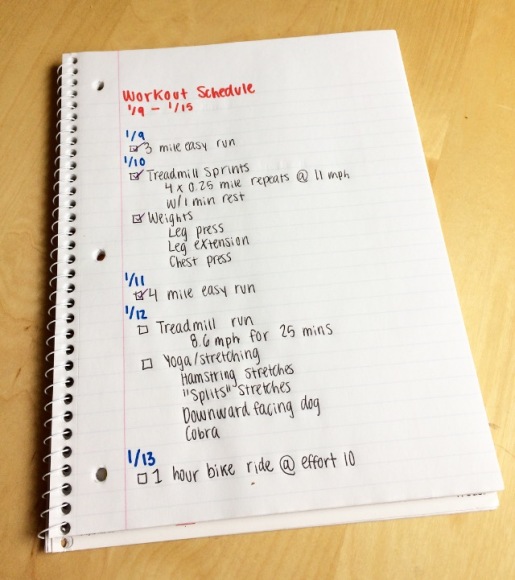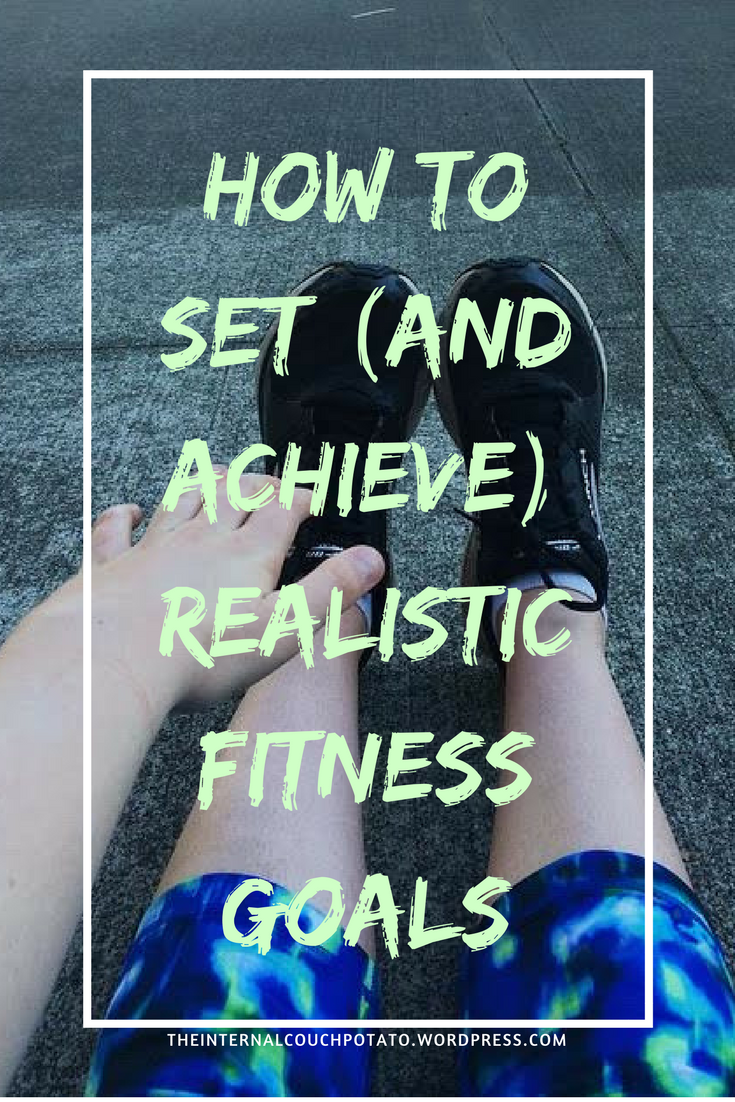
Hello again everyone!. As we all know, the struggle of finding motivation to workout is VERY real among lots of people (and in my opinion, not discussed enough). As an internal couch potato, I have felt this struggle many times myself. Though I work out a lot, I cannot tell you how many times I’ve driven myself down to the gym, only to realize that what I actually wanted to do with my free hour was eat pizza and watch TV instead. Of course, don’t we all have these types of thoughts from time to time? However, it becomes a problem when these thoughts actually do keep us from working out and living a healthy lifestyle, which is why this is something I want to cover before I start posting a ton of health and fitness related posts. Before I can post those, I have to give you all some tips on how to stay motivated to follow them, or better yet, how to motivate yourself to be motivated.
First off, let me just say that working out and eating healthy sometimes flat-out sucks. Lifting weights at the gym will cause your whole body to feel like it’s on fire, and later you’ll feel like you’ve turned into an elastic sludge-ball. Riding your bike, going for a run, or going swimming will leave you out of breath, and your skin may turn the same color as your fruit punch Gatorade. Going for a brisk walk or doing yoga and stretching can make you hurt in ways you never thought were possible. Any kind of workout is going to make you tired, and why on earth would you want to be tired when you could be not-tired? On top of that, there are so many good things to eat that are unhealthy, but what stinks is having to HEALTHY food instead of all of that fatty, sugary goodness. Seriously, can they ever just make things that taste like cinnamon rolls or french fries that are NOT bad for you. Let’s be honest here, no salad is ever going to taste as good as an enormous cookie or a piece of cake. If salads tasted like cookies, but were as nutritious as salads, the world would be a much better place. There, I said it. My inner couch-potato has spoken. Having a healthy lifestyle sometimes just stinks.
However, after having been on numerous sports teams growing up, I’ve come to realize that being physically active really does not have to be as miserable as it sometimes sounds. Perhaps you think going to the gym is incredibly boring and tedious, and doing workouts there feels like torture. Back when I was in junior high and high school, I hated going to the gym for those exact reasons, but I was still in really good shape. Why? Because I found a way to work out that just worked for me, and that was being on the track, cross country, and swim teams. When I graduated and could no longer be a part of those teams, I still kept up with swimming and running, and I still credit those sports as my primary source of motivation to work out.
Over the years, I have thankfully discovered numerous ways to keep myself motivated to workout on those days where it is the absolute last thing I want to do. I’ve also found that any workout you do is going to feel ten times worse if you have absolutely zero motivation to do it. If you’re a newbie to fitness and working out regularly, or if you’re in good shape but are currently experiencing a sort of “block” in your levels of motivation, here are some tips for you!
- Search for a physical activity that you ENJOY doing. I touched on this earlier, but if you have an activity that you really enjoy doing, you will be much more engaged with it, and thus more motivated to do it regularly. In addition, if you’re trying to fall into a regular workout routine, it’s going to be much more difficult if you keep doing some kind of physical activity that you can’t stand. I want to let you in on a little secret–it is completely okay if you don’t like to lift weights, do yoga, Pilates, CrossFit, circuit training, distance running, etc. There is no set of “right” and “wrong” physical activities to enjoy doing more than others. I personally do all of the activities I just mentioned, but my favorite out of all of them is distance running. In all honesty, I don’t think I ever would have gotten into those activities if I hadn’t gotten into distance running first. This was because I found that distance running was something I just enjoyed doing, and because I had found a physical activity that made me happy, I was more motivated to try other kinds of physical activities. Trust me, I don’t think I EVER would have gotten into fitness if I had forced myself to do CrossFit instead of running (for those of you who haven’t done CrossFit, all I will say is that it is really REALLY hard at first). Point being, first find something you like doing, even if it’s just going for a walk or playing frisbee.
- Set a goal. This is probably the main thing that allowed, and still allows me to, make it through incredibly hard workouts. Even today, having a goal in the back of my mind while I do tough track workouts is what keeps me going strong through all of them. As hard as some of those workouts are, I’m always thinking “This workout is hard, but if I quit it, then I’m not going to reach my goal of running this time.” Having a goal in mind while you are working out will give you a reason not to quit. If you want, you can write that goal on your hand or arm if you’re having trouble remembering it during your workout.

- First set a fitness-related goal, rather than a body-related goal. In my opinion, I think this is the first kind of goal you should set for yourself if you ultimately want to stay in a regular workout routine. Why? Let’s say someone starts going to the gym regularly because they want to lose 30 pounds. Losing weight is the only goal this person has, and it is the only reason they working out in the first place. Time passes, and this person eventually loses 30 pounds. Wait a minute, they’ve reached their goal. They had no other goals. They don’t actually enjoy working out. This person might stop working out regularly once they’ve reached their goal, thus falling out of their workout routine. However, with fitness related goals, you can ALWAYS keep challenging yourself to get better. Even if you can bench press 200 pounds, you can set a new goal for yourself to bench 230 pounds. That’s why it’s important to set goals that specifically have to do with a certain area of fitness. Of course, you can set a fitness related goal and a body related goal at the same time, but never forget about that fitness goal when you are working out. As tempting as it can be to think about exercise in terms of how it is a necessary step to achieving some kind of weight or body, never forget about how you want to get better at that activity.
- Plan out your workouts for the week. In my opinion, writing out all of your workouts for the week is incredibly helpful with keeping you on track with your goals. I find it even more helpful to set it up as a weekly checklist. Of course, you can plan out your workouts for 2, 3, 4, etc. weeks in advance if you want to, but I find that just having a shorter checklist of workouts to complete feels less daunting and more attainable.

- Watch motivational videos on YouTube. Thankfully there is a super easy way to find motivation to workout, and it’s likely only a few taps on your smartphone screen away! Watching motivational videos always gives me an instant surge of motivation, and there’s no shortage of these videos on YouTube either 🙂
- Tell people about your goals. If you tell your friends and family about what your fitness goals are, they are probably going to start asking you about them regularly. Having additional support will definitely keep you motivated to work out. Imagine this conversation.
Friend: “Hey, how was your day?
You: “Pretty tiring. Work was so hard today. I think I’m going to go home and sleep.”
Friend: “Oh shoot, that sucks! How is your 5k training plan going?”
You: “Ugh, I stink at it. I think I’m going to skip my run for today.”
Friend: “What?? How could you stink at it? You run 4 days a week!”
You: “Yeah…well…..”
Friend: “You run a lot more than lots of people I know! You’ve been really dedicated! You’re going to do awesome at your 5k!”
You: “Why, thank you! You know what, I think I’m actually going to go for that run after all!” You see, other people can give us so much motivation, which is why it’s important to tell them about your goals. They can help you!!
- Journal your progress. Keeping a journal not only helps you track your workouts, but it helps you see how far you’ve come since you started training. Let’s say when you started working out, you could only hold a plank position for 15 seconds. After several weeks of training, you can now hold it for a whole minute. Holding a plank feels so easy to you now that you’d forgotten how hard it had been for you initially, and looking back in a journal can remind you of how far you’ve come.

- Start a training group. Even better than having people cheering you on is having people cheering you on as they work right beside you! During tough workouts, if there is someone alongside you that feels just as fatigued as you do, but they’re still working hard, it will motivate you to work hard as well. It is important, however, to train with a group that has the same goals as you.
- Reward yourself often. For all of the hard work you are doing, you deserve to reward yourself. Obviously you shouldn’t give yourself huge, excessive rewards every day, but give yourself something small every day or few days to make you happy! Put a face mask on, watch an extra hour of Netflix, or eat a yummy treat. Dark chocolate and ice cream are my favorite foods to treat myself to. Don’t worry. A small treat every now and then is not going to kill you. 🙂

How do you stay motivated to work out? Let me know in the comments below!

